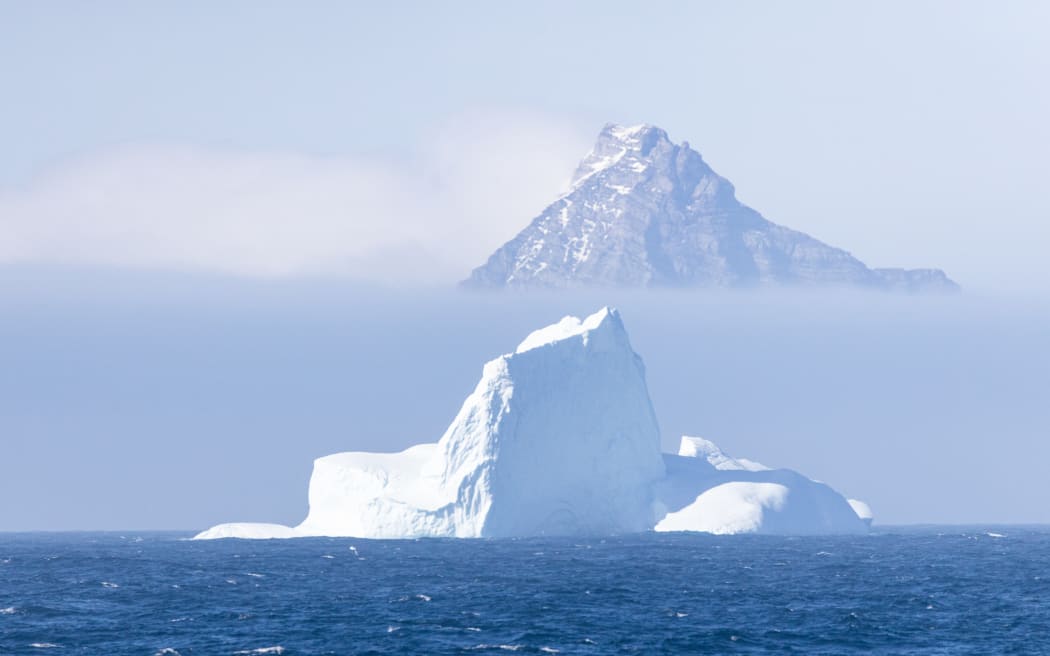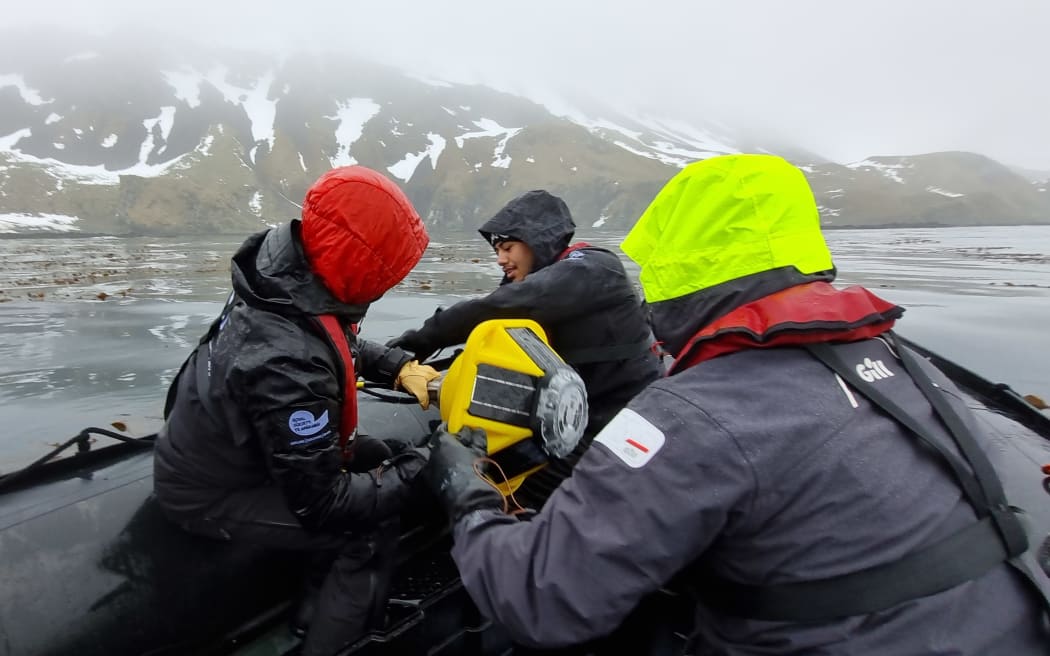
An iceberg emerges from the thick sea fog as the Magellan Explorer approaches South Georgia. Photo: © Cole Yeoman / Antarctic Heritage Trust
Follow Our Changing World on Apple Podcasts, Spotify, iHeartRADIO, or wherever you listen to your podcasts
South Georgia, in the far reaches of the Southern Atlantic, is a wild and isolated island. It’s also the final resting place of famed Antarctic explorer Ernest Shackleton.
To commemorate the 100th anniversary of Shackleton’s last journey, 22 young New Zealanders travel with the Antarctic Heritage Trust’s 9th Inspiring Explorers Expedition to South Georgia, continuing an enduring legacy of scientific observation.
Records rare from this corner of the world
The expedition recorded rare weather observations from this remote and seldom-visited destination.
Accompanied by Kelly Davenport and Peter Fisher, two meteorologists from MetService, the Inspiring Explorers science team conducted regular and comprehensive weather reports using the same equipment, terminology and methods that would have been used in Shackleton’s time.
But they also brought some state-of-the art weather equipment, which can collect more data than a heroic-era meteorologist could ever have dreamed of.

Inspiring Explorers Sasha Cheng (left), Rykien Amiatu (centre), and Lawrence Rothwell (right) retrieve the MetService spotter wave buoy from the frigid coastal waters of South Georgia. Photo: Peter Fisher
Lots of data is important for weather and climate science today. Data feeds into global weather models – complex simulations of the planet’s atmosphere that assist the near-term prediction of weather patterns worldwide.
Data collected from remote locations such as South Georgia is particularly impactful, as it helps us fill in the blanks in the map of Earth’s weather.

